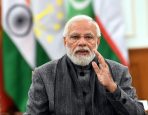
When Clive named Calcutta one of ‘most wicked places’!
PTI, Jan 16, 2022, 4:13 PM IST

New Delhi: Colonial administrator Robert Clive once compared the ancient city Gomorrah, notorious for vice and depravity, to Calcutta and dubbed the then capital of British India as ”one of the most wicked places in the universe”.
Clive, who was the first governor of Bengal Presidency under the East India Company in the 18th century, earned the title ”Clive of India” as he played a key role in establishing Britain’s colonial domination over India.
In July 1765, in a letter to East India Company official Sir Francis Sykes, Clive compared Gomorrah favourably to Calcutta.
”I will pronounce Calcutta to be one of the most wicked places in the Universe. Corruption licentiousness and a want of principle seem to have possessed the minds of all the civil servants, by frequent bad examples they are grown callous, rapacious and luxurious beyond conception…” This anecdote has been shared by BJP MP M J Akbar in his new book ”Doolally Sahib and the Black Zamindar: Racism and Revenge in the British Raj”, a chronicle of racial relations between Indians and their last foreign invaders.
The author says on his return from England in May 1765, the first decision Clive made was to curb ‘gifts’, a euphemism for rampant corruption.
”All presents between 1,000 and 4,000 now required permission – anything above that went into Company coffers. This shocked and infuriated Company officials, who believed that they needed 3,000 pounds a year to maintain their lifestyle, and thrice that amount to take back as retirement benefits, at a time when the salary of a member of the governor’s council was 330 pounds.
”The historian Percival Spear, using florid metaphors appropriate to colourful larceny, writes: ‘The brotherhood of exploitation, the freemasonry of graft, had been violated. Clive had put himself outside the pale. They sharpened their mental knives of revenge on the grindstone of hate while dipping their quills of complaint in the ink of defamation’,” the book says.
Published by Bloomsbury India, the book draws upon the letters, memoirs and journals of traders, travellers, bureaucrats, officials, officers and the occasional bishop.
A multitude of vignettes, combined with insight and analysis, reveal the deeply ingrained conviction of ‘white superiority’ that shaped this history.
So who is Doolally? According to the book, ‘Doolally’ derives from Deolali, a transit camp situated in Nashik about a 100 miles from Bombay and referred to the feverish Doolally Sahib and the Black Zamindar eccentricity of the English soldier waiting to go home.
Among many other interesting bits of information, Akbar writes about one of Mahatma Gandhi’s less-known talents – his ability to use laughter as a piquant missile in the armoury of non-violence. ”During his visit to England in 1931 for the second Round Table Conference, Gandhi was asked by journalists what he thought of Western civilization. It would be a good idea, the Mahatma replied,” he writes.
”The quip must have been especially pungent for Winston Churchill, still an intermittently successful provocateur rather than the icon he would become. Churchill, the eternal imperialist, had famously dismissed Gandhi as a ‘malignant subversive fanatic’ and seditious lawyer ‘now posing as a fakir of a type well-known in the East, striding half-naked up the steps of the Viceregal Palace’, after Gandhi’s pact with the Viceroy Lord Irwin in March 1931,” he says.
Churchill described ”Hindus as a ‘beastly people with a beastly religion’ because they had the temerity to challenge his beloved British Empire. Churchill got along quite well with Indians who supported the Empire”, the book says.
Akbar also argues that Churchill belonged to the ”school of hard-boiled imperialists who scorned ‘Indian tricks’ and the religious baggage trundling in its wake”.
”He was determined never to be outwitted by a toothless Mahatma without an appetite who had adopted the garb of a fakir. What Churchill did not appreciate was that Indians had always understood the difference between the artifice of a conjuror and the power of a man of God,” he writes.
Udayavani is now on Telegram. Click here to join our channel and stay updated with the latest news.
Top News
Related Articles More

Don’t blame Dubai’s freak rain on cloud seeding

What role does genetics play in breast cancer? How can genetic testing help with early breast cancer diagnosis?

From Orbit to Earth: ISRO’s Contributions to Understanding Himalayan Glacial Shifts

Modi Supports Philippines with BrahMos Missiles in China Sea Dispute

LS 2024: Yet another face-off between seasoned politicians Kota Srinivas Poojary & Jayaprakash Hegde
MUST WATCH
Latest Additions

My family faces threat from strangers who filmed inside my house: Neha Hiremath’s father

Indian-origin man shot, killed by San Antonio police amid attempts to apprehend him

Restored version of Shyam Benegal’s ‘Manthan’ to premiere at Cannes Film Festival

Aranthodu: Pillion rider killed in car-motorbike collision

Rahul Gandhi to address two public meetings in Karnataka today
























